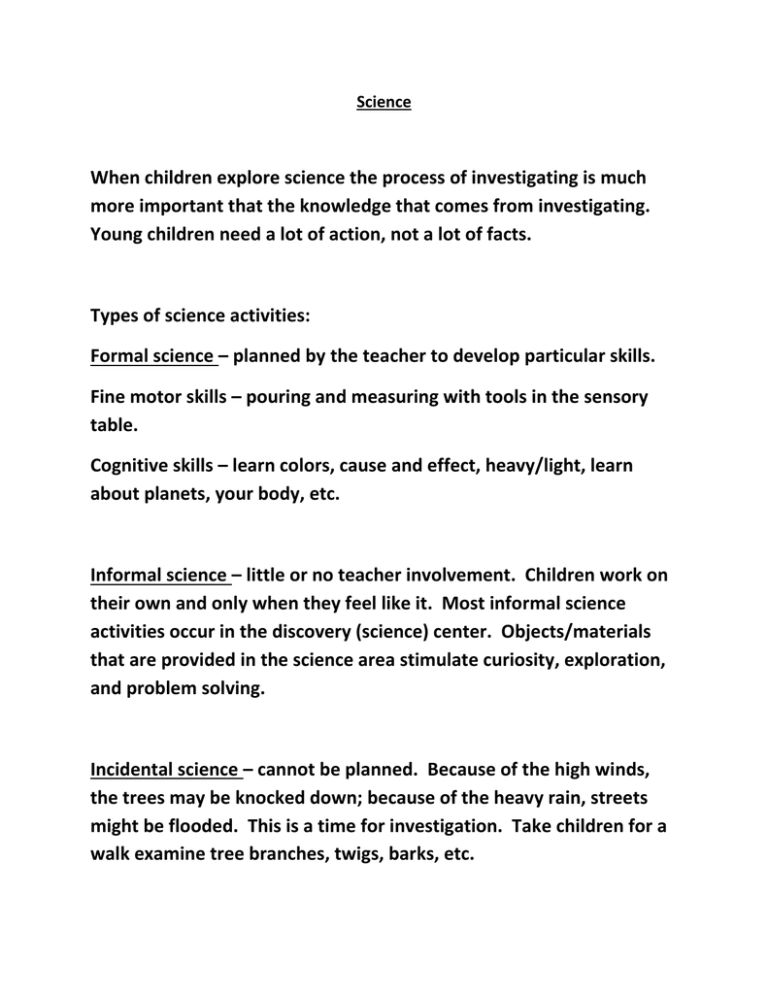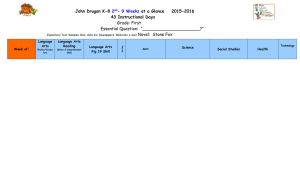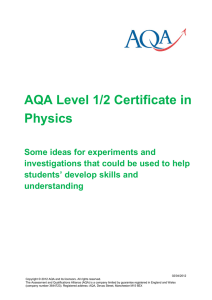When children explore science the process of investigating is much
advertisement

Science When children explore science the process of investigating is much more important that the knowledge that comes from investigating. Young children need a lot of action, not a lot of facts. Types of science activities: Formal science – planned by the teacher to develop particular skills. Fine motor skills – pouring and measuring with tools in the sensory table. Cognitive skills – learn colors, cause and effect, heavy/light, learn about planets, your body, etc. Informal science – little or no teacher involvement. Children work on their own and only when they feel like it. Most informal science activities occur in the discovery (science) center. Objects/materials that are provided in the science area stimulate curiosity, exploration, and problem solving. Incidental science – cannot be planned. Because of the high winds, the trees may be knocked down; because of the heavy rain, streets might be flooded. This is a time for investigation. Take children for a walk examine tree branches, twigs, barks, etc. What children learn in the discovery (science) area: Life science – plants, animals (how they live, grow) Physical science – magnets, balls, ramps; learn how things move; experiment with mixing different combination of things (sand and water, vinegar and baking soda, flour and water); to learn about physical properties. Earth and the Environment – include rocks, shells, and other items from the earth’s surface. Use recycled items for experimentation.




